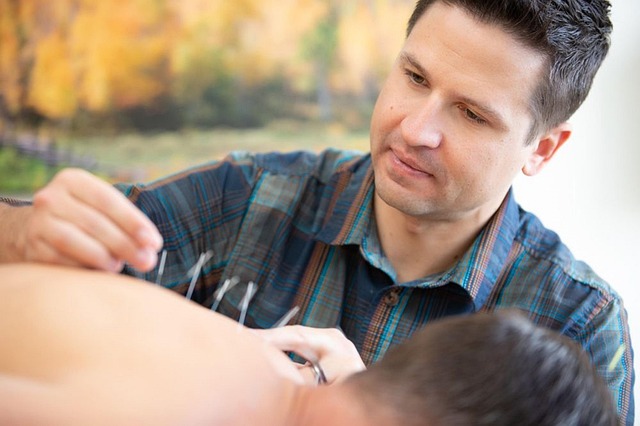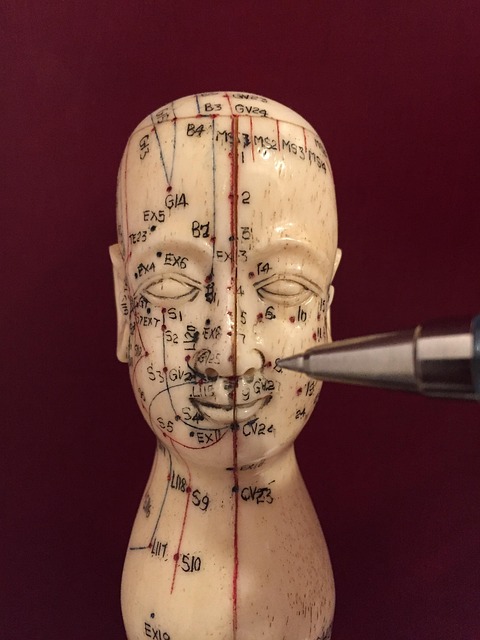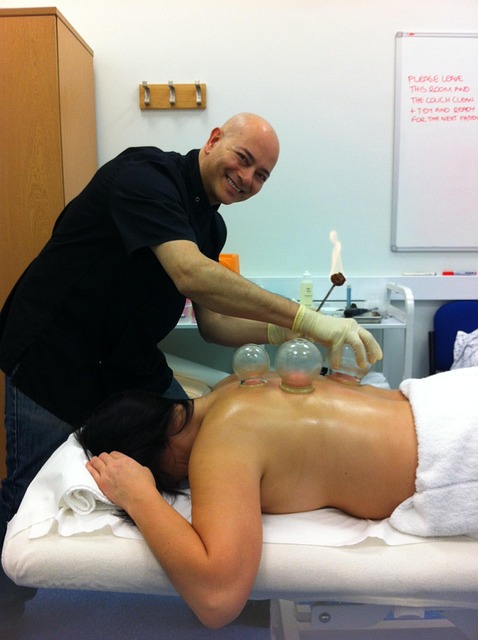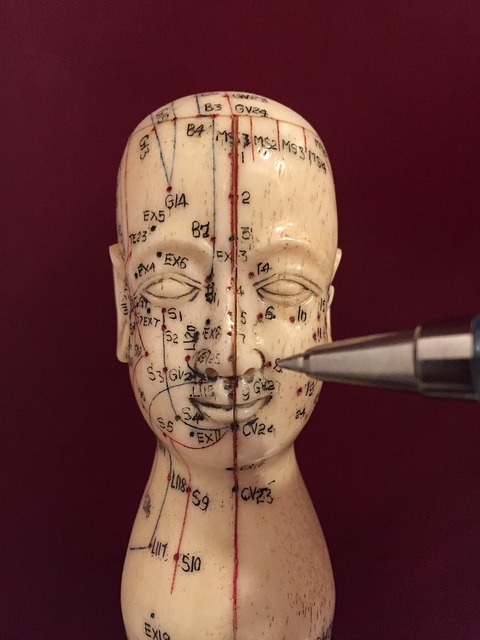Reproductive acupuncture is a specialized form of traditional Chinese medicine focused on addressing root causes of infertility by balancing hormones, improving circulation, and promoting mental calmness through needle insertion at specific energy points. Tailored for conditions like polycystic ovary syndrome (PCOS) and endometriosis, it enhances fertility by regulating menstrual cycles, promoting healthy ovulation, and improving the uterine environment. In Austin, reproductive acupuncture complements IVF treatments, increasing success rates while supporting overall well-being. It's particularly effective for PCOS patients, balancing hormones and restoring optimal ovulatory patterns.
“For women and couples facing fertility challenges, exploring alternative treatments like reproductive acupuncture can be a promising path. This ancient practice, tailored to support IVF (In Vitro Fertilization) and natural conception, has gained recognition for its potential to enhance fertility.
Our article delves into the science behind reproductive acupuncture, its impact on IVF success rates, and its holistic benefits for women seeking healthy pregnancies. We explore how this ancient art can address joint fertility issues in couples and seamlessly integrate with modern reproductive treatments.”
- Understanding Reproductive Acupuncture: Unlocking Fertility Potential
- The Role of Acupuncture in IVF Success Rates
- Natural Conception and Acupuncture: A Holistic Approach
- Benefits for Women Seeking Fertility Support
- Couples Therapy: Acupuncture for Joint Fertility Challenges
- Integrating Acupuncture with Modern Reproductive Treatments
Understanding Reproductive Acupuncture: Unlocking Fertility Potential

Understanding Reproductive Acupuncture: Unlocking Fertility Potential
Reproductive acupuncture is a specialized form of traditional Chinese medicine that focuses on addressing the root causes of infertility in women and couples striving for pregnancy, whether through IVF or natural means. This holistic approach involves inserting thin needles at specific points along energy pathways to restore hormonal balance, improve circulation, and calm the mind. Unlike Western medicine’s focus on treating symptoms, reproductive acupuncture seeks to correct imbalances that may underlie conditions like polycystic ovary syndrome (PCOS) and endometriosis, which can hinder conception.
In women’s health Austin, maintaining hormonal balance is key to optimal fertility. Acupuncture treatments tailored for these concerns can help regulate menstrual cycles, promote healthy ovulation, and enhance the uterine environment, thereby increasing the chances of successful natural conception or IVF outcomes. By addressing both physical and emotional aspects, reproductive acupuncture supports the overall well-being of individuals navigating the journey towards parenthood.
The Role of Acupuncture in IVF Success Rates

Acupuncture has emerged as a valuable adjunctive therapy for individuals and couples navigating the complexities of infertility treatments, particularly when coupled with IVF (In Vitro Fertilization). Reproductive acupuncture, a specialized form of this ancient practice, targets specific points to promote hormonal balance and overall reproductive health. This natural approach aims to enhance the effectiveness of IVF by addressing underlying issues that may impact fertility.
For women with conditions like Polycystic Ovary Syndrome (PCOS), which often disrupts hormonal balance and ovulation, acupuncture can be a beneficial tool in the pregnancy prep journey. By stimulating specific acupressure points, this therapy helps regulate hormones, normalize menstrual cycles, and improve overall reproductive function. When combined with IVF or natural conception attempts, PCOS acupuncture can potentially increase success rates by optimizing the body’s natural environment for successful fertilization and implantation.
Natural Conception and Acupuncture: A Holistic Approach

For many women and couples navigating the path to parenthood, natural conception or using in-vitro fertilization (IVF) can be challenging. This is where reproductive acupuncture emerges as a holistic approach to support fertility treatments. Beyond its ancient origins, reproductive acupuncture focuses on balancing the body’s energy flow to optimize reproductive health. By targeting specific points, this technique aims to enhance hormonal balance, improve egg quality, and stimulate healthy sperm production, all of which are crucial factors in achieving conception naturally or with IVF.
In the context of women’s health Austin, pregnancy prep Austin, and hormonal balance Austin, acupuncture serves as a complementary therapy that works hand-in-hand with traditional medical practices. By addressing underlying imbalances, it can potentially increase the success rates of fertility treatments while promoting overall well-being. This holistic approach not only empowers individuals but also offers a calming and natural method to navigate the often stressful journey towards parenthood.
Benefits for Women Seeking Fertility Support

Acupuncture offers a holistic approach to fertility support, providing women and couples with natural remedies to enhance their reproductive health. One of the key benefits is its ability to improve cycle regulation, which is particularly beneficial for those dealing with conditions like Polycystic Ovary Syndrome (PCOS). By promoting balance within the body, reproductive acupuncture can help restore optimal ovulatory patterns, increasing the chances of conception both naturally and when assisted with IVF.
In addition to cycle regulation, this ancient practice has been shown to reduce stress and anxiety, often significant factors in fertility challenges. The gentle stimulation of specific acupuncture points can promote relaxation, improve blood flow to reproductive organs, and enhance overall hormonal balance. These effects contribute to a healthier environment for egg development and implantation, ultimately supporting successful pregnancy prep in Austin and beyond.
Couples Therapy: Acupuncture for Joint Fertility Challenges

Many couples facing fertility challenges often turn to reproductive acupuncture as a holistic approach to support their journey. This therapy is especially beneficial when both partners are dealing with underlying issues that impact fertility. Acupuncture for couples involves treating both individuals simultaneously, addressing hormonal imbalances and promoting overall reproductive health in Austin.
For instance, women with conditions like Polycystic Ovary Syndrome (PCOS) can benefit from PCOS acupuncture treatments, which focus on restoring hormonal balance. Similarly, men experiencing low sperm count or poor quality due to stress or lifestyle factors can receive targeted acupuncture sessions to enhance their fertility. By treating the root causes of infertility, reproductive acupuncture offers a natural and gentle way to complement IVF procedures or enhance natural conception efforts in women’s health Austin.
Integrating Acupuncture with Modern Reproductive Treatments

Acupuncture, an ancient practice with roots in traditional Chinese medicine, has gained recognition for its potential to complement modern reproductive treatments like IVF. Reproductive acupuncture specifically targets the regulation of hormonal balance and cycle regulation, addressing underlying issues that may impact fertility. For women or couples navigating the challenges of PCOS (Polycystic Ovary Syndrome) or seeking natural conception support, integrating this alternative therapy with conventional care can be transformative.
In Austin, where access to cutting-edge reproductive healthcare is abundant, acupuncture clinics specialize in hormonal balance Austin and offer tailored treatments for individuals seeking IVF support. By unblocking energy meridians associated with reproduction, acupuncturists work to optimize fertility by reducing stress, regulating hormones, and promoting overall reproductive health. This holistic approach not only enhances the effectiveness of IVF cycles but also empowers individuals to take a proactive role in their journey towards parenthood.
